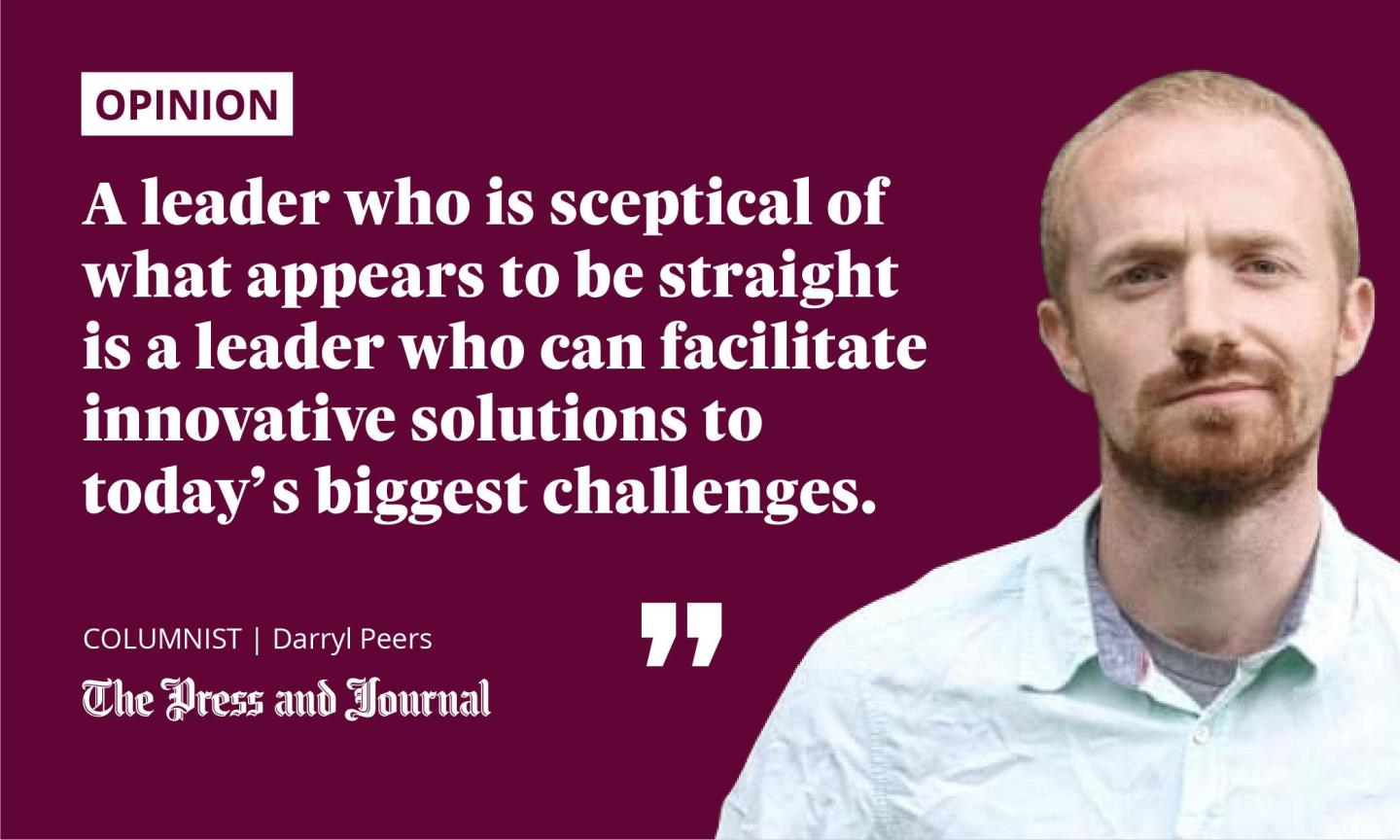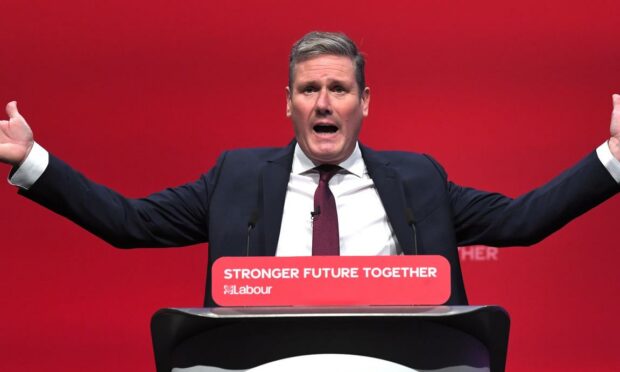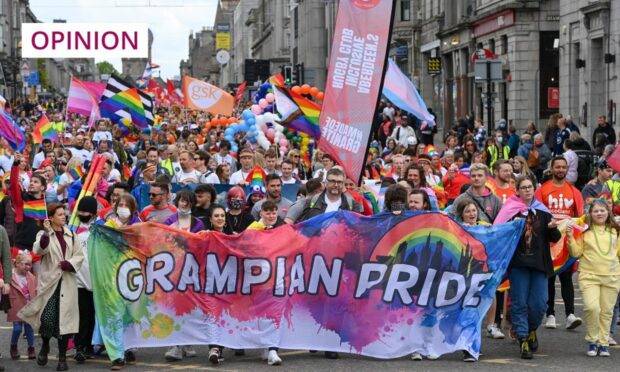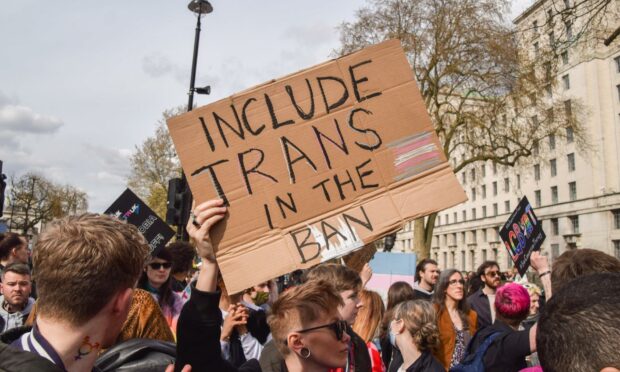Pouncing on a new lead in the polls for Labour, Sir Keir Starmer opened 2022 with a speech.
Among the headlines was his promise of “straight leadership”, should he take power, in contrast to the truth-bending of Boris Johnson and the Conservative Party. In this context, Starmer is using “straight” to mean honest and trustworthy. Straight up the middle, what you see is what you get – no caveats.

We also hear of alcohol being served straight, to mean without a mixer or ice. Or, we hear “give it to me straight” when someone wants to hear the unfiltered truth of a story.
Starmer is drawing on these connotations of the word to suggest that he will take governance seriously. He will be honest with the public and his rules will apply to him and his friends.
Starmer’s willingness to call out Conservative arrogance and dishonesty is welcome. However, I don’t know if straightness is the answer.
Conflating ‘straight’ with ‘honest’ is a mistake
Among LGBTQ+ people in the UK and abroad, it is more common for “straight” to refer to someone whose appearance or demeanour corresponds with normative gender expectations.
Sometimes it is associated with dishonesty and truth-avoidance, insofar as heteronormative environments, such as the nuclear family, frequently depend on gendered norms. These norms prevent truth because they throttle possibilities for anyone to live in a way that does not perpetuate them.
The conflation of “straight” with “honest” implies that, if something is bent, curved, or in an otherwise unusual shape, it is dishonest or inauthentic. This echoes a commonly held homophobic belief: that LGBTQ+ people define themselves by their sexuality or gender identity, while straight people – who apparently care less about their identities – are defined by a greater range of characteristics.
Given the generally accepted normalcy of straightness, the choices of queer people are more noticeable
There are many everyday choices that straight-presenting and queer people alike make, consciously or otherwise, to preserve their gender or sexual identity. However, given the generally accepted normalcy of straightness, the choices of queer people are more noticeable. As a result, they are labelled performative, over the top, or looking for attention.
Women of all sexualities are often described in these terms. In every case, the objective is to make people who are not heterosexual men behave more like heterosexual men.
Heterosexual men are society’s default ‘normal’
And what does it mean to behave like a heterosexual man? It is to have a gender and sexuality so embedded within social conceptions of “normal” that they are invisible, freeing oneself for definition by other things, such as hobbies or interests. In the case of Boris Johnson, he is free to be viewed as a joker, a bumbling English gentleman, allowing him to make light of serious matters while retaining the illusion of doing an honest job.
Contrast this to how Theresa May was treated. When she danced to Abba, or said that her idea of rebellion was running through a field of wheat, she was mocked. Johnson is mocked for incidents such as the zip wire caper, but the shenanigans is separated from his politics.
In May’s case, the mockery worked to turn her into a caricature, discrediting her professional ability for reasons entirely unrelated to how she did her job. That sounds uncomfortably like sexism.
Johnson is beginning to lose popularity. If Keir Starmer sees this as an opportunity to out-man his opponent, to be straighter than him, I’d propose that honesty is the minimum he should be striving for.
‘Straight’ thinking doesn’t always solve problems
Sometimes the truth is not straight or direct; often it is complex.
Alan Turing was sceptical of the ‘normal’, and he intuitively understood gender as a series of conscious and unconscious actions rather than inherent to any individual
For instance, one simple truth is that the planet is experiencing climate catastrophe. Another is that the oil industry is vital to the north-east’s economy. We do not want politicians to bend either of these truths. We need them to understand how to make policies which bend between these apparently polarised interests, to flex in the face of ever-changing conditions such as those caused by the pandemic.
On the same day as Starmer’s speech, the Home Office announced that they are extending pardons to all historical same-sex crimes which have been abolished, such as that for which Alan Turing was tried.
Turing was sceptical of the “normal”, and he intuitively understood gender as a series of conscious and unconscious actions rather than inherent to any individual. These convictions underpin his formulation of The Imitation Game, one of many innovations which make him an intellectual leader in computer science, whose influence still resonates today.
A leader who is sceptical of what appears to be straight is a leader who can facilitate innovative solutions to today’s biggest challenges. Leadership of this kind would enable Starmer to highlight Johnson’s untruths and offer an alternative, ambitious vision for the UK’s future.
Darryl Peers is a writer from the north-east of Scotland









